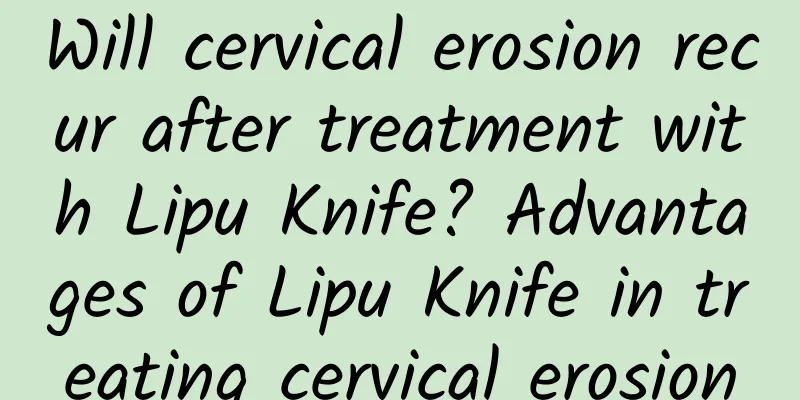Can thin uterine wall cause premature ovarian failure?

|
Thin uterine wall does not directly cause premature ovarian failure, but it may indirectly affect it through hormone imbalance or other related pathological problems. Thin uterine wall is usually related to endometrial lesions and abnormal hormone levels, while premature ovarian failure is related to genetics, immune disorders, and metabolic disorders. Therefore, if both exist at the same time, comprehensive evaluation and treatment are required. 1Possible causes and effects of thin uterine wall Thin uterine wall is often related to insufficient estrogen secretion, repeated damage to the endometrium, or trauma such as surgical curettage. It may also be caused by chronic inflammation, endocrine disorders and other factors. Too thin uterine wall will affect the normal function of the endometrium, such as cyclical hyperplasia and exfoliation. In severe cases, it may also lead to abnormal menstruation, infertility or difficulty in embryo implantation. This situation usually requires intervention with drugs that promote endometrial growth, such as estrogen-increasing therapy and progesterone supplementation therapy, while avoiding further damage. 2 Causes and manifestations of premature ovarian failure Premature ovarian failure refers to the decline of ovarian function in women before the age of 40, often manifested by amenorrhea, decreased sex hormone levels, infertility and other symptoms. It is mainly related to genetic factors, family history of premature aging, chromosomal abnormalities, autoimmune disorders, metabolic disorders, long-term stress and bad living habits. Sometimes it may also be related to pelvic surgery, radiotherapy and chemotherapy or severe damage to ovarian function. 3. The relationship between the two and intervention suggestions Although there is no direct etiological relationship between the two, there may be an indirect relationship through the following ways: thin uterine wall affects the stability of the intrauterine environment, which may aggravate the hormonal imbalance in the body; and ovarian dysfunction may further lead to endometrial atrophy, forming a vicious cycle of symptoms. If one of the problems is confirmed, it is necessary to actively check the function of the other organ to ensure a comprehensive assessment. In terms of treatment, short-acting contraceptives can be used in combination to regulate hormone levels; Chinese medicine conditioning such as Nuan Gong Pills and Wu Ji Bai Feng Pills can be used to improve uterine and ovarian function; supplemented with nutritional support such as protein and vitamins E and D, and daily exercise to restore female reproductive health. Although there is no causal relationship between thin uterine wall and premature ovarian failure, if related symptoms occur, you should see a doctor as soon as possible to identify the cause. Timely adjustment of lifestyle, including regular work and rest, balanced diet, and avoiding unnecessary intrauterine operations, can protect the function of the uterus and ovaries and reduce potential health risks. |
<<: What drugs to take to treat uterine fibroids
>>: Symptoms of endometritis and pelvic inflammatory disease
Recommend
High-calorie dinner temptation! Reduce appetite, eat less and lose weight
I eat very little during the day, but my appetite...
How should women with ectopic pregnancy bleeding be cared for?
Ectopic pregnancy bleeding is a common complicati...
How to take care of cervicitis in the elderly? A complete list of nursing methods for cervicitis in the elderly
For the elderly, all aspects of their health have...
Hot weather, no appetite! 3 kinds of appetizing rice balls DIY
The weather is getting hotter and hotter. Many pe...
Differences between ovarian cysts and uterine cysts
The difference between ovarian cysts and uterine ...
Get rid of the fat and slim down your belly
In the hot summer, I want to wear a bikini and go...
Can diet be used to treat ovarian cysts?
Eating is the most basic way for people to take i...
Minimally invasive pelvic interventional treatment of pelvic inflammatory disease has the following advantages
There are many treatments for pelvic inflammatory...
Self-relaxation therapy can relieve the mood of patients with functional uterine bleeding
Patients with functional uterine bleeding often b...
Eat Japanese food to lose weight! Choose these foods and you won't get fat
If you want to lose weight, do you have to stay a...
Pay attention to the symptoms of Trichomonas vaginitis
Pay attention to the symptoms of Trichomonas vagi...
Is the cost of vaginitis treatment high?
Is the cost of vaginitis treatment high? Speaking...
How to have an abortion when you just get pregnant? What are the care items after abortion?
If you have just gotten pregnant and need to term...
Why do uterine fibroids need chemotherapy? Is it serious to need chemotherapy for uterine fibroids?
Uterine fibroids are a common benign tumor in wom...
Wu Qili lost 13 kg by eating only biscuits and tofu
Artists really try every possible means to lose w...









